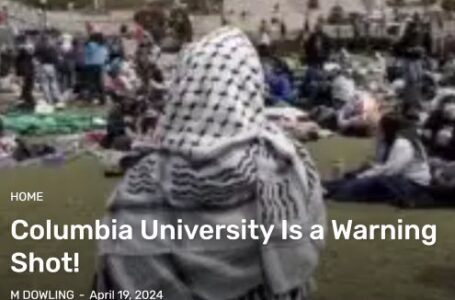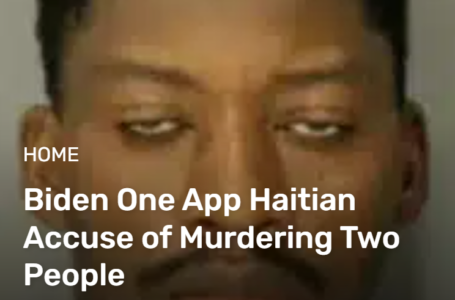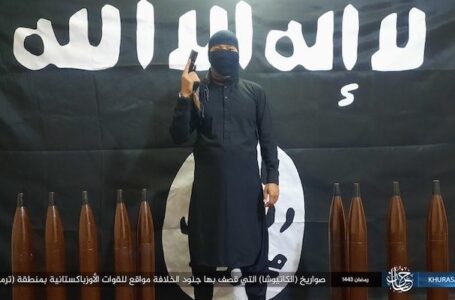Assassinations Continue Investigative Project on Terrorism

Iran Involvement
by Hany Ghoraba
Special to Investigative Project on Terrorism
March 1, 2021
Lebanon is a country marred by a myriad of calamities, from terrorism and assassinations, to massive nuclear-like explosions that devastated Beirut in August. Political assassinations have shaken the country’s political spectrum since 2004. Many of these assassinations target critics of Hizballah, its Iranian patron, and Syria.
The Feb. 4 assassination of activist Lokman Slim is no different. Slim, 59, was an outspoken Shiite critic of Hizballah, Iran’s proxy which dominates Lebanese politics and which has built its own army. He was found shot dead in his car.
Last year, he was critical of Hizballah for storing large amounts of sodium nitrate at Beirut’s port. The result was one of the most massive non-nuclear explosions in history last August. The explosion damaged nearly half the buildings in the capital, killed 200 people and injured more than 6,000 others.
“The responsibility lies on those who need these materials,” Slim told the Voice of Beirut on Dec. 5. “It lies on those who had allies a few kilometers from Beirut [Syrian President Hafez Al Assad] using exploding barrels to bomb his people. Whoever brought the ammonium nitrate brought it for Lebanese affairs, maybe Syrian affairs and maybe others. It is obvious that the ammonium nitrate was brought for military purposes, and there is only one party in this country that competes with the Lebanese army in terms of military strength, and that party is called the Hizballah militia.”
But Hizballah had other reasons to want Slim dead. He was investigating “Hizballah money laundering activities, looking into possible contacts between traders facilitating those activities for the movement, and going as far as attempting to link those with figures working with the Lebanese central bank,” Lebanese journalist Mona Alami wrote.
Days before his murder, Slim told Alami he was working with a Hizballah insider who “was ready to defect in exchange for his extraction from Lebanon and protection” from Hizballah.
A wave of condemnations followed Slim’s assassination, from UNESCO General Director Audrey Azolay to U.S. Secretary of State Antony Blinken. “We join the international community in calling for his killers to be brought to swift justice. Mr. Slim devoted his life to bringing about positive change in Lebanon and bravely pushed for justice, accountability, and rule of law in his country,” Blinken said.
However, swift justice is hard to come by in Lebanon. It took 15 years to reach a verdict for Hizballah officials responsible for killing Prime Minister Rafik Hariri with a massive bomb that targeted his motorcade. A Special Tribunal for Lebanon held in The Hague convicted Hizballah member Salim Jamil Ayyash last August for his part in the assassination but acquitted three other members of the terrorist group. Ayyash received five concurrent life sentences. However, the tribunal stopped short of indicting Hizballah directly after finding insufficient evidence that the leadership of the group ordered the killing.
Since Hariri’s assassination, many high-profile Lebanese political and social-political figures met the same fate. Former cabinet minister Pierre Gemayel died after gunmen attacked his convoy in Beirut in 2006. Gemayel, who was the son of former Lebanese President Amin Gemayel and leader of the Christian Phalange party, was a major critic of the Syrian regime and Hizballah. Anti-Syrian lawmakers Antoine Ghanem and Walid Eido were killed by car bombs in 2007.
Even those who exposed Hizballah’s assassinations and terrorism plots were killed, such as top terrorism investigator Major Wissam Eid.
Some Lebanese citizens protested, demanding justice for the slain activist and a transparent investigation.
No Confidence
Slim’s sister, Rasha al-Amir, told Sky News Arabia that she doesn’t trust that Lebanon’s judiciary system will bring justice to her and her family. “Since I know who are the killers of Lokman Slim we don’t really wish to do anything about it,” she said, describing what she thinks is the government’s thinking. “We are not seeking the truth because it is clear as sunlight … Since we have a state that is more like a ‘cadaver’ so would anyone talk to a ‘cadaver’…. we are not going to ask them anything.”
Her pessimism is rooted in the Hariri case. “There were some people who were accused of assassinating Hariri. Hizballah worked on liquidating them. They said they were killed in Syria, or they disappeared or died, so I don’t have faith in the fairness of any judiciary system in the world even it is an international court,” said al-Amir.
Slim received multiple death threats from Hizballah supporters over the years, who staged protests and vandalized his house, which is located in the southern district of Beirut controlled by Hizballah. In December 2019, he issued a statement saying that he was being targeted by Hizballah supporters.
“For the second time within 48 hours tries the night bats (assailants) to threaten me by targeting the family house in Horeik Alley …The first time Dec. 11 was through entering the house yard and shouting swear words accusing me of treason and the second time is tonight Dec. 13 the same assailants have been posting flyers that accuse of treason of the walls of the house,” wrote Slim. “By this statement, I hold those who have the power, namely Mr. Hassan Nasrallah and Nabieh Berri (Lebanese parliament speaker), in full responsibility for what happened and what may happen. I place myself, my home and the family’s home and their inhabitants in the protection of the Lebanese security forces and on top of them the Lebanese army.”
Hizballah issued an official statement saying that the group denounces Slim’s assassination, and calling on authorities to hold the assassins accountable.
Hizballah leader Hassan Nasrallah tried to brush off accusations about Slim’s assassination, and insinuated that Slim was an Israeli agent. “We did not say whoever was killed here or there was an agent of Israel … and Israel not only kills its agents, but also kills its own Jewish people to serve its project.”
Despite the statement denunciating Slim’s assassination, Hizballah supporters continue to threaten other anti-Hizballah activists, journalists and TV anchors. Some protested with hashtags, calling the media “vile” and accusing it of taking “orders from the embassy (US embassy).”
The vicious circle of violence against Hizballah’s critics in Lebanon is another example of how Hizballah remains a clear and present danger to the integrity of the Lebanese state. Some fear that circle of violence and assassinations would return to the fragile state, thus reopening a chapter that the majority of Lebanese strive to forget. Given Hizballah’s notorious reputation and heavy handed tactics against its critics, Slim is unlikely to be the last victim among Hizballah’s critics.
Hany Ghoraba is an Egyptian writer, political and counter-terrorism analyst at Al Ahram Weekly, author of Egypt’s Arab Spring: The Long and Winding Road to Democracy and a regular contributor to the BBC.
Copyright © 2020. Investigative Project on Terrorism. All rights reserved.















